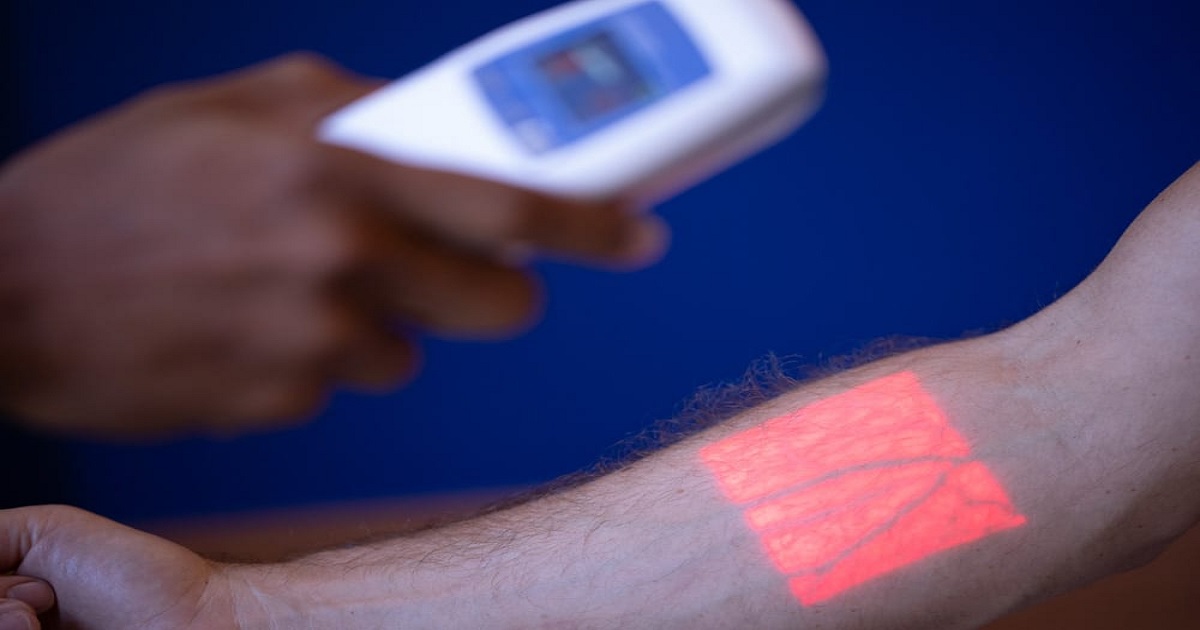
Health Technology, Digital Healthcare
Article | July 14, 2023
The recent COVID-19 pandemic in 2020 has changed the way the healthcare industry has been processing. It has transformed the healthcare sector digitally. Healthcare providers have changed services with the latest healthcare technology trends in digital and virtual platforms. Every healthcare provider is updating services by adopting digital advancements in their practices to increase their capacity to engage the maximum number of patients. Still more advancements and updates are needed to address many challenges in the industry such as cybersecurity, effective payment model, telehealth, patient experience, invoicing and payment processing, and big data.
Last year, wearable devices in the healthcare industry were quite popular with the patients. These devices have helped patients be aware of various healthcare metrics. Due to the introduction of the 5G internet, the wearable devices market is expected to have huge scope in 2021. Healthcare technology trends, such as the use of a digital dashboard scheduler or chatbots as a digital assistant, help hospitals and other healthcare organizations to better track appointments, contacts, demography, and make changes more efficiently as these are practical measures for modifying and monitoring patient activities.
Telemedicine, using video conferencing, digital monitoring, etc. have also been very helpful in containing the spread of the pandemic. It has made healthcare accessible for everyone, especially in rural areas. For remote patient care systems, telehealth and teleradiology reporting are very important technological upgrades. Healthcare technology trends of 2020, including patient portals, mobile health applications, remote care via telehealth, and wearable devices, played a major role in tackling the global pandemic situation. Artificial intelligence (AI), Machine Learning (ML), and Robotic Process Automation (RPA) also played a vital part in handling the situation. All the above-mentioned are COVID-19 fueled healthcare technology trends in 2020, which are expected to continue in coming years too.
Here is a detailed look into the healthcare technology trends, which are expected to address the new challenges and revolutionize the healthcare industry in 2021.
Technology Trends that will Revolutionize the Medical Industry in 2021
The digital transformation of the healthcare industry has been fast-forwarded by COVID-19 in 2020. Recognizing the healthcare technology trends, many healthcare providers have readily shifted their operations to the latest trending technologies. Others are also looking forward to setting their operations according to the upcoming trends.
It seems like almost all the healthcare providers genuinely wanted to transform their operating system to engage the maximum number of patients, due to the healthcare technology trends set after the hardest crisis in the healthcare industry virtual reality healthcare. So, before planning your healthcare strategy for 2021, don’t miss to include these healthcare technology trends of 2021 to achieve better healthcare outcomes and stand one step ahead of your competitors.
Patient Engagement Technology
One of the most competitive healthcare technology trends in 2021 will be patient engagement technology. There are countless technologies available in the market for patient engagement, evaluation, and campaigning. Due to high competition in the market, these tools are priced competitively.
Many healthcare organizations have started empowering themselves by achieving consistency in patient engagement with the help of available tools in the market. This also helps them achieve increased ROI. The healthcare technology trends, including remote care via telehealth, patient portals, wearable devices, mobile health applications, and many more, empower patients and increase patient engagement.
Hospitals and other healthcare organizations need to improve patient experience along with engagement. The entire road to patient satisfaction and experience can be changed with these healthcare technology trends in 2021.
Telemedicine
As telemedicine revolutionized the entire healthcare technology in 2020 by playing a vital role in containing the COVID-19 pandemic, it is expected to be one of the healthcare technology trends in 2021 too.
Using the advancement, it possible for healthcare professionals to diagnose and treat any number of patients remotely through phone calls, mobile apps, emails, and even through video calls. Telemedicine can provide patients with better access to all healthcare services, drive up efficiency and revenue, and lower healthcare costs.
Augmented Reality (AR) and Virtual Reality (VR)
The arrival of both AR and VR solutions has made way to witness meaningful advancements in the healthcare industry and technology. Advancements that could only be dreamt of a decade back, have become realities and been implemented. These two healthcare technology trends offer some serious promise to the world of healthcare, including educating patients before a treatment procedure.
AR offers one of the latest and most spontaneous options in the healthcare industry. AR allows doctors and surgeons to experience 3D effects on real-world scenes. This healthcare technology trend permits the professionals to stay grounded on actual procedures with access to all the data through various other emerging technologies. This makes doctors compare data, in the virtual world, to understand what the patient is experiencing and make a flawless diagnosis and suggest healthcare procedures.
Chatbots
It is either impossible or expensive for patients to get answers from specialists for their routine queries. But, chatbots make it easier and comfortable for healthcare service providers to answer questions of patients cost-effectively. Though chatbots are currently in the experimental phase to be used in healthcare solutions, they are most likely to have the necessary access to clinical scenarios by the beginning of 2021. It is expected to be one of the progressive healthcare technology trends in 2021.
As a digital assistant, chatbots allow healthcare providers to keep a track of contacts and appointments and make changes, when necessary. Chatbots are going to revolutionize the clinical processes and business, providing practical as well as clear measures for modifying and monitoring patient activities.
Big Data and 5G
5G is about to sweep the world in the coming months. With the extraordinary intensification in transmission bandwidth of 5G, users will construct a huge amount of data. With 5G, the Internet of Things (IoT) will be used largely to send and receive data. In the next three years, the global wearables market is expected to reach an annual turnover of US$52 billion. This can be attributed to the introduction of 5G wireless technology, one of the healthcare technology trends.
Healthcare providers will have the access to a huge amount of accurate data when data from wearable devices and other initiatives are added together. This is going to change the way providers collect data and the way doctors and patients communicate.
Thus, while you plan to upgrade your healthcare technology for 2021, don’t forget that you will be receiving a huge amount of data from patients, which can be attributed to one of the important healthcare technology trends of 2021, big data and 5G.
Artificial Intelligence
Artificial Intelligence (AI), one of the prominent healthcare technology trends of 2021, is developed to mimic human thought processes. GNS Healthcare AI system and IBM Watson are some of the most popular examples for the active use of AI in the healthcare process. This trend is going to rule healthcare processes and revolutionize medical care in 2021.
To improve healthcare professionals’ and hospitals’ care delivery to patients, Google’s DeepMind has built mobile apps and AI. The AI healthcare market is expected to reach US$7988.8 million in 2022 from US$667.1 million in 2016. This healthcare technology trend is expected to take the healthcare industry to a new realm by increasing patient engagement and experience in 2021.
Cloud Computing
Cloud computing is one of the major healthcare technology trends in 2021 that is going to change the industry. Attributed to the recent development of various healthcare technology trends, the cloud computing market is expected to reach US$35 billion in 2022 from US$20.2 billion in 2017.
This tremendous growth is attributed to the need of storing a high volume of data for healthcare organizations at a lower cost. In the healthcare domain, the main use of big data is in Electronic Health Record systems (EHR). It allows secure storage of various digital documentation such as demographics, medical history, diagnoses, and laboratory results. Cloud computing, an important healthcare technology trend, is expected to make the healthcare process smooth and flawless in 2021.
The biggest trend of 2021 in the healthcare industry is the holistic technological transformation of healthcare firms. Whether AI, ML, RPA, telemedicine, big data, chatbots, or cloud computing, almost everything related to data management and monitoring will peak in 2021. These healthcare technology trends will rule healthcare in 2021. Moreover, targeted and personalized care for critical diseases is expected to be another trend in the coming years.
Frequently Asked Questions
What are the technology trends in healthcare?
Trending healthcare technologies are AI, ML, RPA, cloud computing, big data, chatbots, telemedicine, etc. AI, the life-changing technology is going to completely transform the healthcare industry in the coming years starting from 2021.
What are the most important trends in healthcare technology?
Augmented and virtual reality, Artificial Intelligence, the Internet of Medical Things, Machine Learning, chatbots, cloud computing, telemedicine, etc. are the most important technology trends in the healthcare industry.
What are the current technological trends in healthcare?
Artificial Intelligence (AI) and Machine Learning (ML), Internet of Medical Things (IoMT), Augmented Reality (AR) and Virtual Reality (VR), Electronic Health Records (EHR), Blockchain and data security, health-tracking apps, therapeutic apps, and telehealth are the major current technological trends in the healthcare industry.
Read More

Health Technology, AI
Article | July 18, 2023
Healthcare is top of mind as the coronavirus hits hard everywhere. The inefficiencies of the system itself are on full display during the pandemic — where testing is hard to come by, diagnoses and treatments are reactive rather than proactive, and many people do not get the care they need, when they need it. Adrian Aoun, CEO and founder of Forward, a tech-driven healthcare startup, told Karen Webster that it’s possible to build a completely new healthcare ecosystem, beginning with primary care — and the overhaul needs to leverage data and artificial intelligence (AI).
Read More

Health Technology, Digital Healthcare
Article | September 8, 2023
Your patients have grown to trust your expertise and recommendations in matters regarding their healthcare. As the sector transitions into a more digital playing field, uninterrupted network connectivity is more than just a bonus; it’s a necessity.
While there are many different challenges to completely integrating your practice into the digital world, internet outages are the costliest. Downtime can be caused by various factors, which can compromise patient safety, the faith your team instills in you, and your practice’s reputation and revenue. However, investing in the means to maintain a resilient network lets you maximize your network uptime to optimize resources.
We'll look at four different strategies and their benefits for your infrastructure so you can focus on what you do best: providing healthcare excellence to your patients.
Strengthening Network Infrastructure
The traditional way of doing things may be great for your remedies and techniques. Still, with a growing number of patients and their contextually relevant demands, your network needs to be able to accommodate many different booking requests, increase user activity on your server, and store sensitive patient information.
High-speed internet connections enhance your network performance and let you, your team, and your patients make the most of your uninterrupted uptime. Fiber-optic networks, when combined with load balancing and proper segmentation, can diffuse and direct network traffic efficiency and prevent congestion, which prevents downtime due to overload.
Implementing Network Monitoring and Management Tools
Much like your patients visit your practice to ensure everything is all right with the current state of their health, your network must also receive the same treatment. Identifying and pre-emptively resolving potential issues and vulnerabilities will prevent much more destructive or expensive problems from occurring.
Use real-time tools to monitor your bandwidth usage and gain visibility of potential bottlenecks. Tools that offer risk monitoring deliver alerts about critical events that pose a threat to your business continuity. Your IT team will be better equipped to troubleshoot issues promptly and optimize performance.
Conducting Regular Network Assessments and Audits
Once you have the proper monitoring tools to manage your network topology better, proactive troubleshooting is a great way to spot-check whether your current solution is working as it should. A network audit is much like proactive troubleshooting; you are looking to see if anything could harm the overall system and catch it before it can develop.
When auditing a network, the primary focus should be security measures. If patient and confidential data is not secure, the smooth operations of your business are the least of your worries. When conducting an audit, consulting with a network service provider will help identify issues with your protocols, data encryption, and firewall configuration.
Establishing Redundancy and Disaster Recovery Plans
Backing up private and confidential data is crucial to ensuring that sensitive information is not lost or exposed. Minimizing network downtime can often be achieved by having backup systems that will keep running in the event of an attack or outage. For example, a dedicated Cloud Access Network, power supplies, and switches will go a long way.
When creating an internet contingency plan, outline steps and protocols with your team that you will take in the event of a complete failure, including things such as brand reputation management, customer service, and data loss prevention.
Looking Forward
As the lines between in-person and digital are blurred, navigating the complexities of implementing a robust network is paramount to your business.
Strengthening your infrastructure, integrating redundant systems, and conducting regular audits and assessments with the proper monitoring and management tools will help you maximize uptime usage and minimize network downtime.
Although overwhelming, working with a reputable network service provider can help you embrace your network topology to remain competitive.
Read More

AI
Article | December 21, 2021
Global efforts to tackle gender inequality have grown in recent years. But there is still so much to be done. Figures from the United Nations show that outcomes for women and girls continue to lag across a range of issues, including poverty, education, work and health. And according to the World Economic Forum, at the current rate, it will take 108 years to close the gender gap.
Although healthcare is founded in objectivity and science, gender bias is still remarkably common. We wanted to understand more about female perceptions of healthcare, so we undertook consumer research that delved into the experiences of women compared to men. The results pointed to a clear disparity, finding that women are less likely to visit the doctor when they have symptoms of ill health and, in some cases, are taken less seriously when they do seek medical advice.
Women being left behind
According to our research, a significant proportion of British women feel disappointed in the healthcare they receive, with one in five reporting they weren’t taken seriously when presenting symptoms to a healthcare provider. What’s more, a staggering one in four said they are reluctant to seek medical advice at all for fear of wasting a GP’s time. These statistics suggest that, not only are female experiences of healthcare damaging their relationship with clinicians, but they could be eroding confidence in recognising and acting on warning signs and symptoms too.
This sentiment is particularly evident when focusing on cardiac care. One in eight women (13%) feel ignored when presenting symptoms of heart disease to healthcare professionals, compared to just 4% of men. And of UK adults who have received a coronary heart disease (CHD) diagnosis, women experiencing symptoms were 55% more likely than men to visit the doctor multiple times before receiving a referral for further investigation. On top of this, women are five times more likely to receive a false finding from the cardiac stress tests that are traditionally used to assess heart health.
“There does appear to be a gender bias in onward referral to secondary care and for diagnostics in the local area, which is influenced by the attending healthcare professionals’ risk assessment. Traditional teaching has led to gender bias, as we are programmed to attribute a lower level of pre-test probability and risk to females. This may have contributed to a general lack of awareness around cardiovascular health in women. For example, in a survey I carried out among more than 600 female employees working within North West Anglia NHS Foundation Trust, 82% said they didn’t feel informed about their cardiovascular health. Considering participants included some of the most medically informed women in the UK, the results speak volumes about how we view cardiac health among women.”
- Dr Rebecca Schofield, consultant cardiologist at North West Anglia NHS Foundation Trust
These widespread misconceptions around heart disease and heart attacks are often exacerbated by what we see in the media – think of the countless TV stereotypes of male characters clutching their chests and falling to the floor.
But given that CHD is responsible for one in 13 female deaths, it appears that public health efforts have failed to make people aware of the risks for women. It is, perhaps, not surprising then that 42% of women with CHD did not immediately recognise their symptoms as signs of heart disease. In short, women are missing out on time-critical diagnoses and treatment due to a lack of awareness and education among both healthcare providers and the public.
Technologies making a difference
Thankfully, progress is being made to improve healthcare outcomes for women. Innovative technologies are increasingly providing diagnostic solutions that can reduce incidences of human bias and give clinicians greater clarity on the presence or severity of different conditions in their female patients.
For example, AI is already being used to detect diseases such as cancer more accurately. Its adoption is facilitating reviews and translations of mammograms 30 times faster, with 99% accuracy, reducing the need for unnecessary biopsies.
There’s extraordinary potential for AI and healthcare, and it’s something the NHS continues to recognise, most recently with the launch of its Artificial Intelligence Laboratory (AI Lab) and NHS England’s (NHSE) MedTech Funding Mandate. The latter aims to accelerate the uptake of selected innovative medical devices, diagnostics, and digital products to patients.
As part of the NHS efforts, NHSE has mandated the HeartFlow Analysis for use in hospitals across England for patients, male or female, who might otherwise be sent for a cardiac stress test. The HeartFlow Analysis is a gender-neutral technology that takes data from a coronary CT scan of the heart and leverages deep learning (a form of AI) and highly trained analysts to create a personalised, digital 3D model of each patient’s coronary arteries. This then helps clinicians to quickly diagnose CHD and decide the appropriate treatment for patients of any gender. Time spent in hospital is minimised for patients and often layered testing and unnecessary invasive diagnostic procedures can be avoided.
Final thoughts
While AI is helping us tackle gender bias in certain areas such as oncologic and cardiac testing, healthcare professionals are not absolved of responsibility when it comes to confronting this problem. It remains incumbent upon clinicians to recognise unconscious bias that would deter them from referring women or minority patients for much-needed testing.
Outside of the hospital, public health education efforts must expand so that far more of us can recognise shortness of breath, nausea, vomiting, back or jaw pain, and other symptoms beyond chest pain to be indicators of a heart attack in a woman. Knowing what to look for and overcoming personal bias that might lead to these signs being disregarded, may allow us to help one of the more than 100 women who will experience a heart attack in the UK today.
Read More